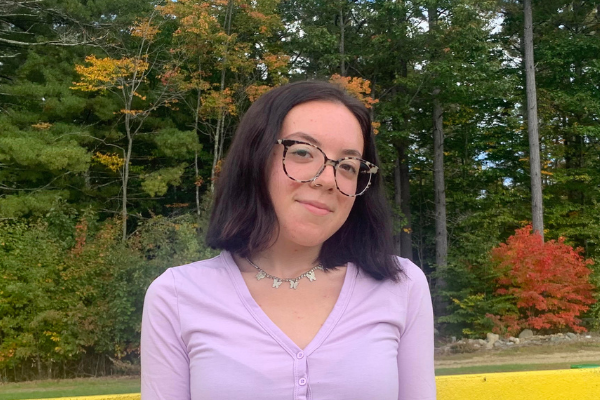We’ve likely all received discouraging feedback on our writing at some stage—the kind that can make us dread picking up the pen ever again! However, we can take something positive from such an experience like Makayla Morello (US), Best Peer Review Winner for our Creative Nonfiction Competition. Makayla used a review “chock-full of not-so-constructive criticism” as a lesson in what NOT to do when giving her own feedback. “I realized that when I give peer reviews, I need to offer criticism in a way that doesn’t seem like I’m degrading a writer or attacking their piece,” she says.
Read on to get more peer reviewing tips from Makayla as well as her coming-of-age book recommendation!

Your review did an excellent job of balancing feedback delivered via the highlighting tool and via the guided questions. How did you ensure you were making good use of both methods without overwhelming the reader?
When I review a piece, I need to keep reminding myself that I CAN’T HIGHLIGHT EVERYTHING!! I tried to steer clear of unnecessary “corrections” or feedback and only pointed out things to the writer that I felt were truly important and would really help them out in their writing. I used the guided questions to emphasize the things that I found most important and what would be most beneficial to the writer, as well as encourage them! I had to keep in mind that if I give an absurd amount of feedback, it might overwhelm the writer, and it would be difficult for them to see what critique was actually important—keep it simple!
Our Guest Judge Beverly Beckham said, “I have a file full of college essays red-inked with criticism so I am aware, to this day, of what negative feedback can do. Makayla is an excellent reviewer because she is helpful, not hurtful.” Have you ever received a review that taught you something about what to do/not do when giving your own reviews?
I’ve had my fair share of overly-critical reviews that have shown me what NOT to do in my reviews. I specifically remember getting a review from a teacher years ago for a writing piece I had worked hard on, and it was just so chock-full of not-so-constructive criticism, and things that I couldn’t even use to better my work. This showed me what not to do in my reviews because it left me feeling pretty dejected about my work. I realized that when I give peer reviews, I need to offer criticism in a way that doesn’t seem like I’m degrading a writer or attacking their piece, and I need to balance that with a good amount of positive feedback! And, if someone is truly passionate about writing, you definitely don’t want to discourage them by simply picking apart everything they did “wrong” in their piece.
What do you find most challenging about providing peer reviews, and how do you work through and overcome this challenge?
The thing I find the most challenging about writing peer reviews is probably trying to find out which feedback would be most helpful to the writer as they continue to work on their piece. What I do to work through this challenge is reread the piece of writing I’m trying to critique over and over again. I also put myself in the writer’s shoes and try to visualize what kind of feedback I would want on my work, and how I would want it phrased. I make sure to pay attention to the footnotes as well since oftentimes writers will specify what kind of comments/feedback they are looking for.
Our Creative Writing Competition theme was the transitional time of adolescence. What is your favorite coming-of-age story?
Not only is The Catcher in the Rye one of my favorite books of all time, but it would have to be my favorite coming-of-age novel. Throughout this book, we see protagonist Holden be forced to mature and confront the fact that life isn’t as innocent as he thought it to be. It’s my favorite coming of age novel for a few reasons: there is a slow, subtle, wonderful progression of Holden’s maturity, mental state, and viewpoint on this world and on adulthood—you could never pinpoint a certain moment and be like, “that’s when it happened.” Every time I read The Catcher in the Rye, I’m able to pick up on new things that I didn’t notice or didn’t think super in-depth on in prior reads. Maybe rereading it through this lens of “the transitional time of adolescence” will help me absorb even more of the story and make me notice things I hadn’t noticed before, and see the story in somewhat of a different light.





